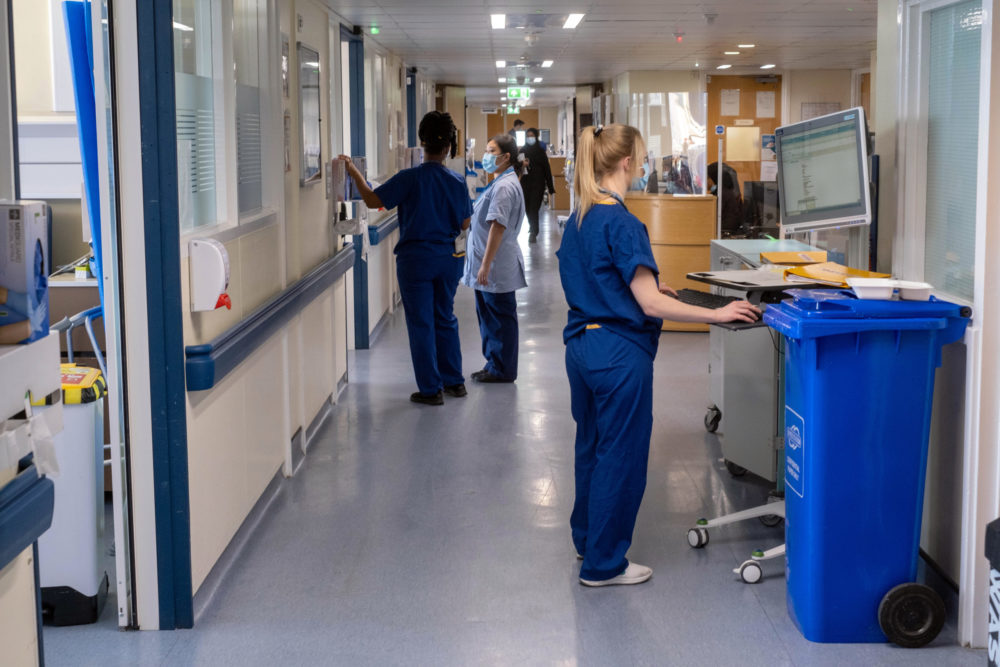New report highlights solutions to tackle Wales’ waiting time crisis

A new report from Wales’ leading independent health think tank has highlighted evidence-based solutions to help tackle NHS waiting times.
The Bevan Commission is now encouraging the wider adoption of some of its recommendations to help address the scale of the nation’s healthcare crisis.
The report, titled ‘Why Wait? Building on Proven Initiatives to Reduce Waits in Wales’ details how waiting lists have increased by 73 per cent when compared to pre-pandemic levels, with over 800,000 patient pathways currently open.
Projections indicate that this number could exceed 830,000 by May 2026, with nearly half of those waiting longer than 26 weeks for treatment.
Impact
Dr. Helen Howson, Director of the Bevan Commission said: “These figures are deeply troubling. They represent a crisis that is impacting the health and well-being of our communities, eroding public trust, and placing immense pressure on our health and care workforce.
“But amidst these challenges, there is great hope as can be seen from the innovative solutions developed, tried and tested by our Bevan Exemplars.”
The report highlights a selection of innovative projects from the Bevan Exemplars programme that are already have a positive impact on waiting times and system capacity.
These projects, led by frontline health and care professionals include:
-
- Optimising processes and workflows
- Delivering more care in community settings
- Prioritising patients based on clinical need
- Leveraging technology to enhance efficiency
- Expanding the roles of healthcare professionals
Projects which have proved successful include:
- Prostate Active Care Together (PACT) – Freeing up thousands of GP appointments by empowering men with prostate cancer to manage their care at home.
- Mental Health Response Vehicles – Reducing A&E visits by 71% through rapid, community-based mental health assessments.
- First Contact Dietitian-Led Gastroenterology Clinics – Slashed wait times from three years to four months by empowering dietitians to provide initial assessments and management.
- Radiology Pathway Navigation – Streamlining the radiology process to reduce delays and improve patient experience, particularly for cancer patients.
‘No brainer’
Dr. Helen Howson said: “These projects are ‘no brainers’. They demonstrate that by working smarter, not harder, we can make significant improvements to patient care and system efficiency. If scaled up across Wales, they could have a transformative impact.”
The report also draws on lessons from past successes, such as the NHS Plan in the early 2000s and international examples from Canada, New Zealand, Denmark and Sweden.
It highlights the importance of sustained investment, better integration of services, and streamlined patient flow.
Based on its analysis, the Bevan Commission had made five key recommendations which include a review all waiting lists to ensure treatments remain necessary and the implementation of High-Impact Theatre (HIT) sessions and surgical hubs to tackle backlogs.
Streamline
The think tank has also advised an improved system of patient flow through streamlined pathways and enhanced coordination between care sectors.
Dr. Helen Howson: “We encourage the Welsh Government, healthcare leaders, and professionals across the country to embrace these projects and the recommendations working collaboratively to adopt spread and embed more innovative solutions.
“Together, we can create a more efficient, equitable, and sustainable health and care system for Wales.”
Support our Nation today
For the price of a cup of coffee a month you can help us create an independent, not-for-profit, national news service for the people of Wales, by the people of Wales.






My husband was referred to Cardiff and the Vale hospital for a cardiology appointment over a year ago and today got a letter saying he had been put on the waiting list with no timeframe for an appointment.
We don’t need Assisted Dying in Wales, the NHS already provide the service.
Having had my recent GP referral to the local hospital rejected by them I got curious and Googled the practice to see how common it was. Seems it is a growing trend and the inevitable conclusion has to be this cavalier rejection of patients is being used to reduce waiting lists. Perhaps the Bevan Commission might consider researching this trend and determine if there are negative consequences for patients?